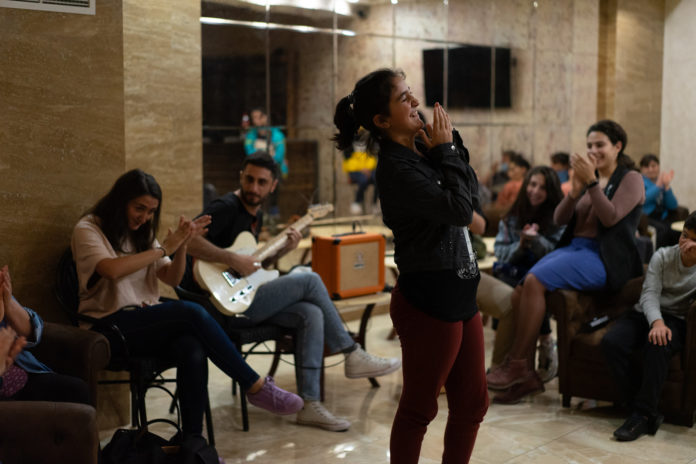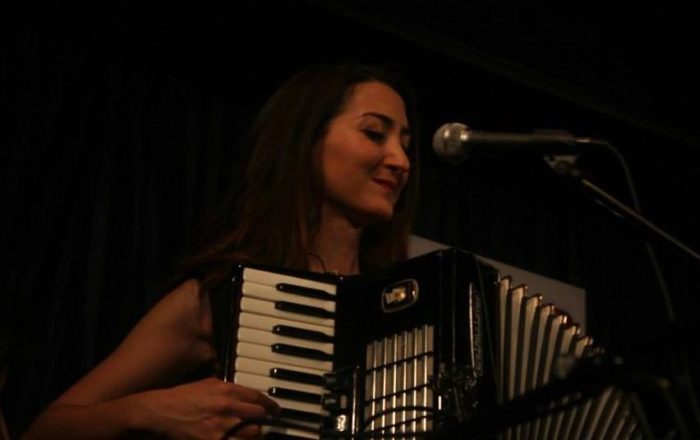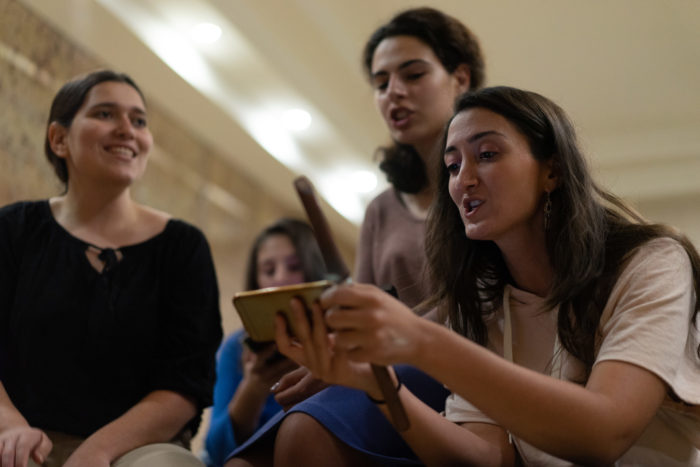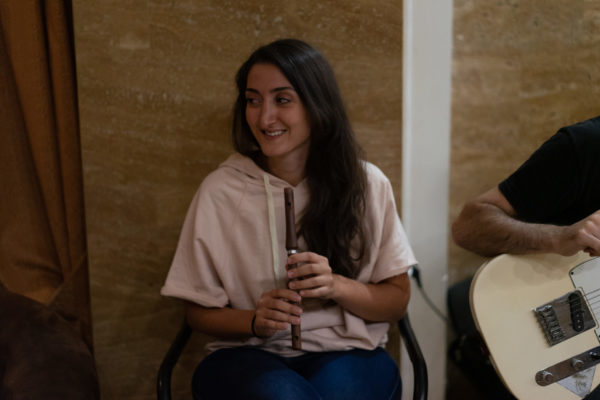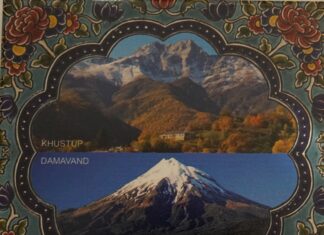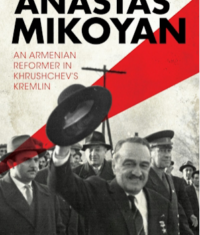YEREVAN — For repatriate Armenian folk singer and musician Sevana Tchakerian, as soon as the war broke out in Artsakh, she knew all of her plans would change. The Paris-born musical artist and leading member of the avant-garde folk group Collectif Medz Bazar has been living in Armenia since 2015. She was visiting her family in Paris when Covid-19 broke out, and made the best of her time there this past spring and summer by creating an entertaining cooking-and-music video series on social media with her mother Alenoush, titled “Agh oo Hats – Doone Gats” (Salt and Bread – Stay at Home). When restrictions were lifted, Sevana was overjoyed to return to Armenia. But scarcely after her return, the war broke out.
Four years ago, Tchakerian helped a group of friends, including executive director Anna Mikaelian, to open a music and arts center in Yerevan called Nexus Center for the Arts. (https://www.nexuscenterarts.com/ )
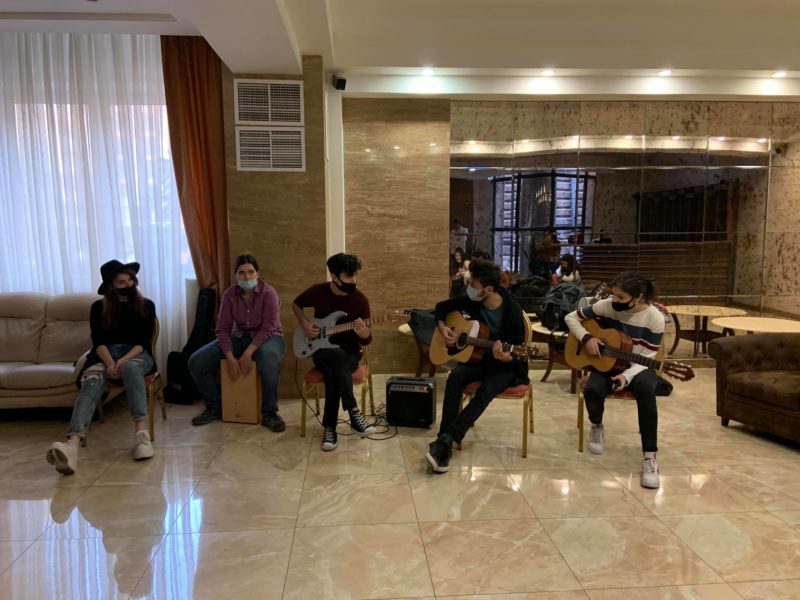
She worked there for a year and a half creating curriculum for preschool and elementary school kids. When her performance and touring schedule increased, she had less time to teach and she stepped out of her role at the Nexus Center. But upon her recent return to Armenia, she began setting up shop again at the Center and planning for new programs. Then Azerbaijan attacked Artsakh, and thousands of refugees from the region – mainly women and children – began pouring into Yerevan.
“I told Anna, the director, we have to do something,” Tchakerian says. “What can we do? Should we record music, should we write music? Ok, maybe we should open up the doors of the school and have music and arts workshops.”
Workshops, that is, for the thousands of Artsakh kids now in taking refuge in Yerevan, deprived of education and certainly of any kind of arts and music education. Sevana went Live on Facebook as she herself says, “in a very spontaneous way” to announce the initiative. In her message, which was posted in both Armenian and English, and directed at her worldwide following in addition to friends in Yerevan, she stated that “we are not able to go and fight, but our weapon that we have here with us is music and art.” She further issued a call to musicians living in Yerevan willing to volunteer for this special effort, and asked for donations from the Diaspora to help run the instantly-expanded program.
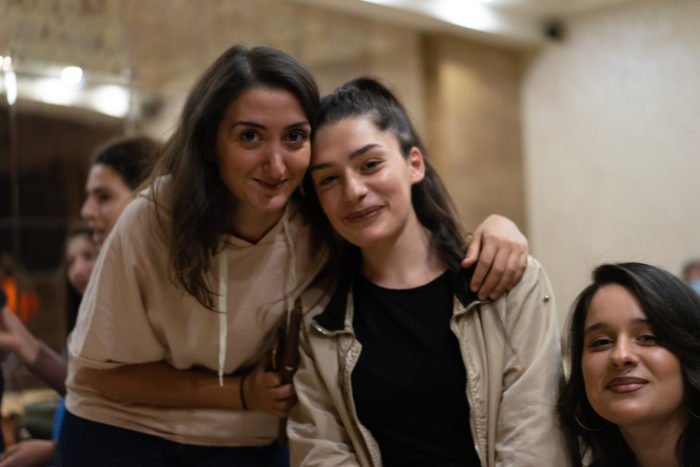
The result was the rapidly organized “Nexus for Artsakh” program, which has Tchakerian as co-director along with Mikaelian, who still runs the Nexus Center on a daily basis. The idea of the program, as Tchakerian says, is that “there is a war on the front lines, there are attacks on the civilian population, there is a war in the media, online. But we have to take care of the people who are now in Armenia who are temporarily displaced, and what we can do best, personally, is music education, art education, and kind of bring a sense of normality to these kids’ lives. Because they grew up in war – they live in a war zone, you know? So what can we do to take their minds off a little bit?”



